Toner has long been a staple in many skincare routines, yet its necessity and optimal usage remain subjects of much debate. When it comes to using toner morning and night, many skincare enthusiasts find themselves asking whether this practice is truly essential or if it borders on excessive. With evolving beauty standards and a growing understanding of skin health, it’s time to explore the real impact of toner in both morning and nighttime routines. In this comprehensive guide, we will delve into the benefits, potential drawbacks, and best practices for integrating toner into your daily skincare ritual, ensuring your skin reaps maximum benefits without compromise.
You may also like: The Essential Rituals for a Natural Skincare Routine That Supports Whole-Body Wellness
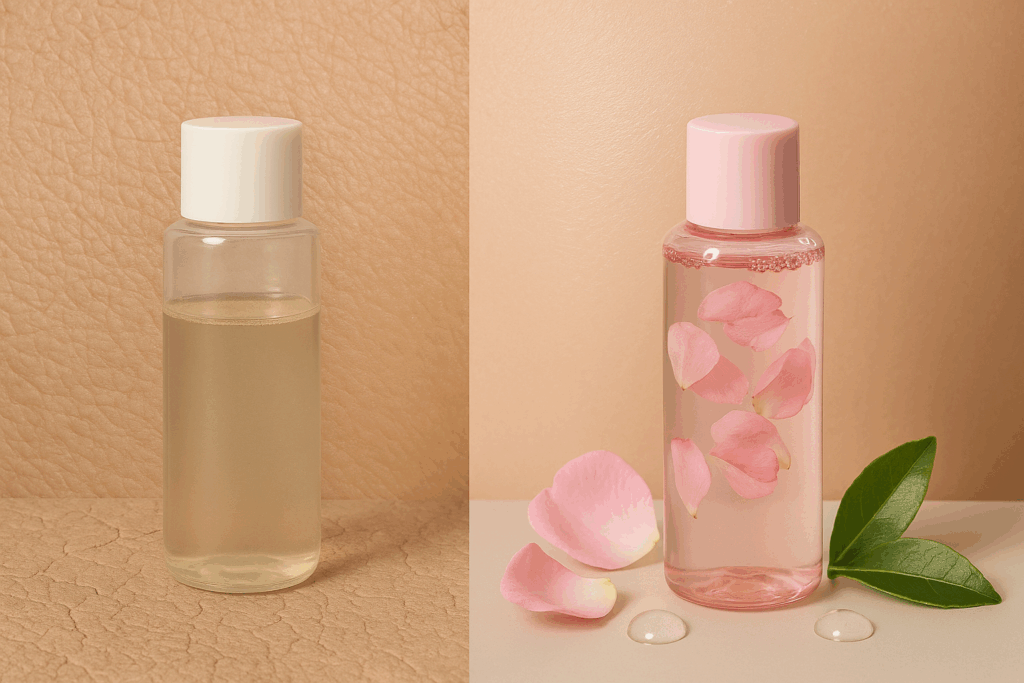
Understanding What Toner Really Does
To grasp the significance of using toner morning and night, it’s important first to understand what toner is and what it does for your skin. Traditionally, toners were alcohol-based products designed to remove excess oil and tighten the skin, often leaving a drying effect. However, modern formulations have evolved significantly. Today’s toners are far more hydrating and serve multiple purposes beyond simple oil control.
Modern toners are designed to balance the skin’s pH after cleansing, prep the skin for better absorption of serums and moisturizers, and sometimes even provide additional treatment benefits depending on their ingredients. Ingredients such as hyaluronic acid, glycerin, rose water, and botanical extracts offer hydration, while salicylic acid and witch hazel can help with acne control and pore refinement. By incorporating toner into your skincare routine both morning and night, you are essentially priming your skin for enhanced absorption of subsequent products, optimizing their effectiveness.
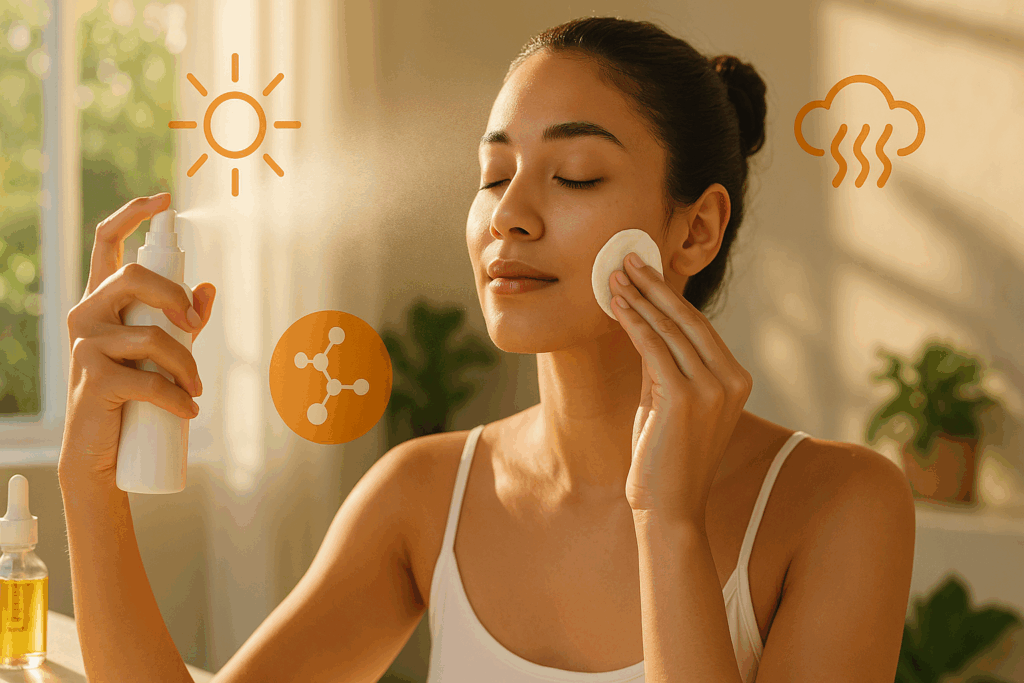
The Science Behind Using Toner in the Morning
The morning is a crucial time for skincare, as it sets the foundation for how your skin will handle environmental stressors throughout the day. When you use toner in the morning, you are not only removing any residue left from your nighttime routine but also refreshing your skin and balancing its pH level. A balanced pH helps fortify the skin’s natural barrier, making it more resilient against pollutants and harmful UV exposure.
Additionally, many toners are infused with antioxidants and protective agents that work to shield the skin from free radicals, which are known to accelerate aging and contribute to skin damage. Using toner in the morning, therefore, serves as both a preparatory and protective step, ensuring your skin is fortified against daily aggressors while enhancing the effectiveness of your moisturizers and SPF products.
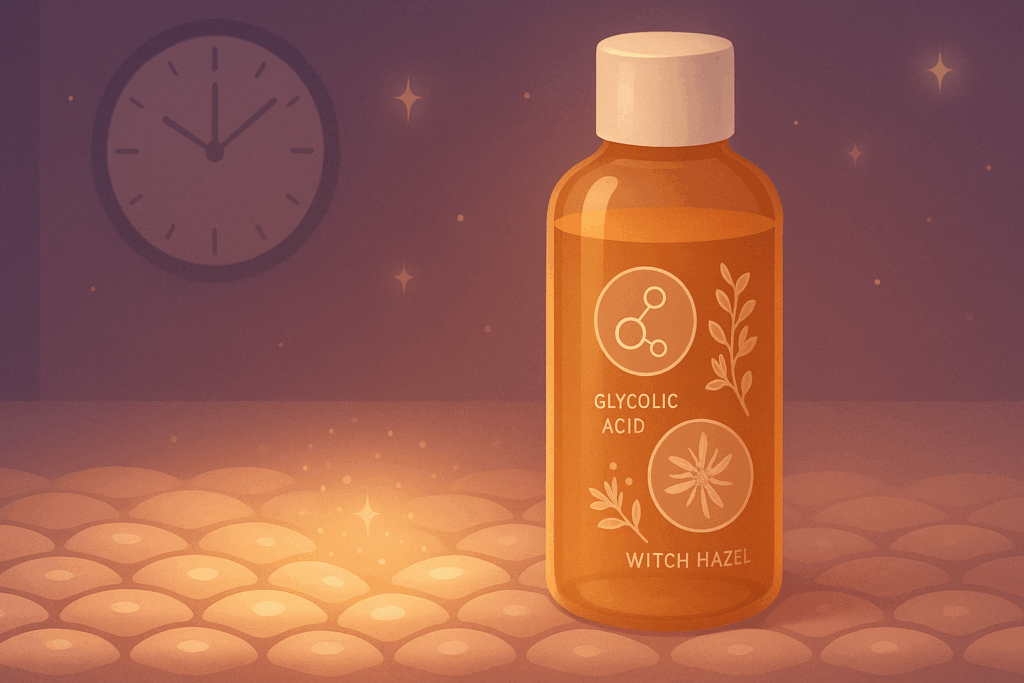
Why Nighttime Toner Application is Equally Important
While morning application focuses on protection and preparation, nighttime usage of toner is centered around recovery and renewal. During the night, your skin enters a reparative state, working to heal damage and regenerate new cells. Applying toner before your nighttime serums and creams helps to clear away any impurities left behind after cleansing, allowing your skin to breathe and absorb nourishing ingredients more effectively.
Certain types of toners, particularly those with gentle exfoliating properties, can assist in sloughing off dead skin cells, reducing the chances of clogged pores and breakouts. Ingredients like glycolic acid or lactic acid, when used appropriately in toner form, can aid in cell turnover without the harshness of stronger chemical exfoliants. This not only smooths the skin’s texture but also promotes a more radiant complexion over time.
The Benefits of Using Toner Morning and Night
Integrating toner into both your morning and nighttime skincare routines provides a holistic approach to skin health. By using toner morning and night, you are actively maintaining the skin’s pH balance, which is vital for its protective barrier. A well-balanced pH ensures that the skin remains resilient to environmental aggressors and less prone to inflammation and irritation.
Moreover, consistent use of toner helps in better product absorption. When your skin is balanced and prepped, serums and moisturizers penetrate more effectively, delivering their active ingredients deeper into the skin. This maximizes the benefits of your skincare products, enhancing hydration, anti-aging effects, and overall skin clarity.
In the following sections, we will explore the common questions surrounding toner application, including the debate of “do you use toner morning and night” and the ideal steps for integrating it into your skincare routine. We will also look into whether toner is more effective in the morning or at night, and how to optimize its use for the best results.
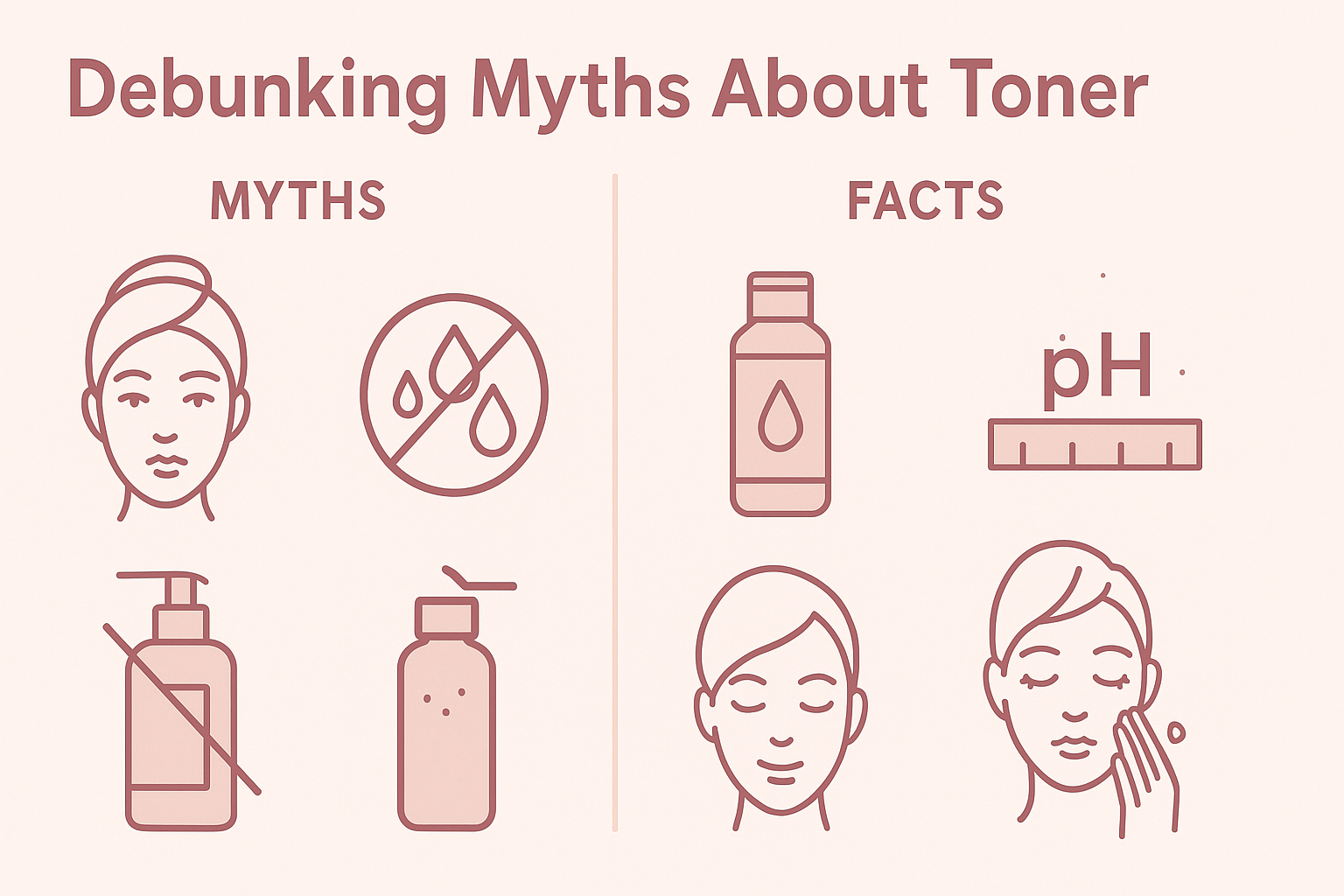
Debunking Myths About Toner
There are numerous myths surrounding the use of toner, especially when it comes to deciding whether you should use it morning and night. One of the most common misconceptions is that toner is only necessary for oily or acne-prone skin. While it’s true that many traditional toners were designed to combat excess oil, modern formulations are suitable for all skin types. Hydrating toners, for instance, provide moisture and nourishment, making them ideal for dry and sensitive skin as well.
Another prevalent myth is that using toner twice a day strips the skin of its natural oils. This belief stems from outdated formulations that were heavily alcohol-based. Today’s toners are more sophisticated, focusing on balancing hydration and maintaining the skin’s pH without causing dryness or irritation. Understanding the ingredients in your toner is key to dispelling these myths and using it effectively both in the morning and at night.
Finally, some believe that if you use a good cleanser, toner is redundant. This is a misconception. While cleansing removes surface impurities, toner goes a step further by balancing your skin and prepping it for optimal absorption of subsequent products. Skipping this step can mean missing out on a more refined, radiant complexion.
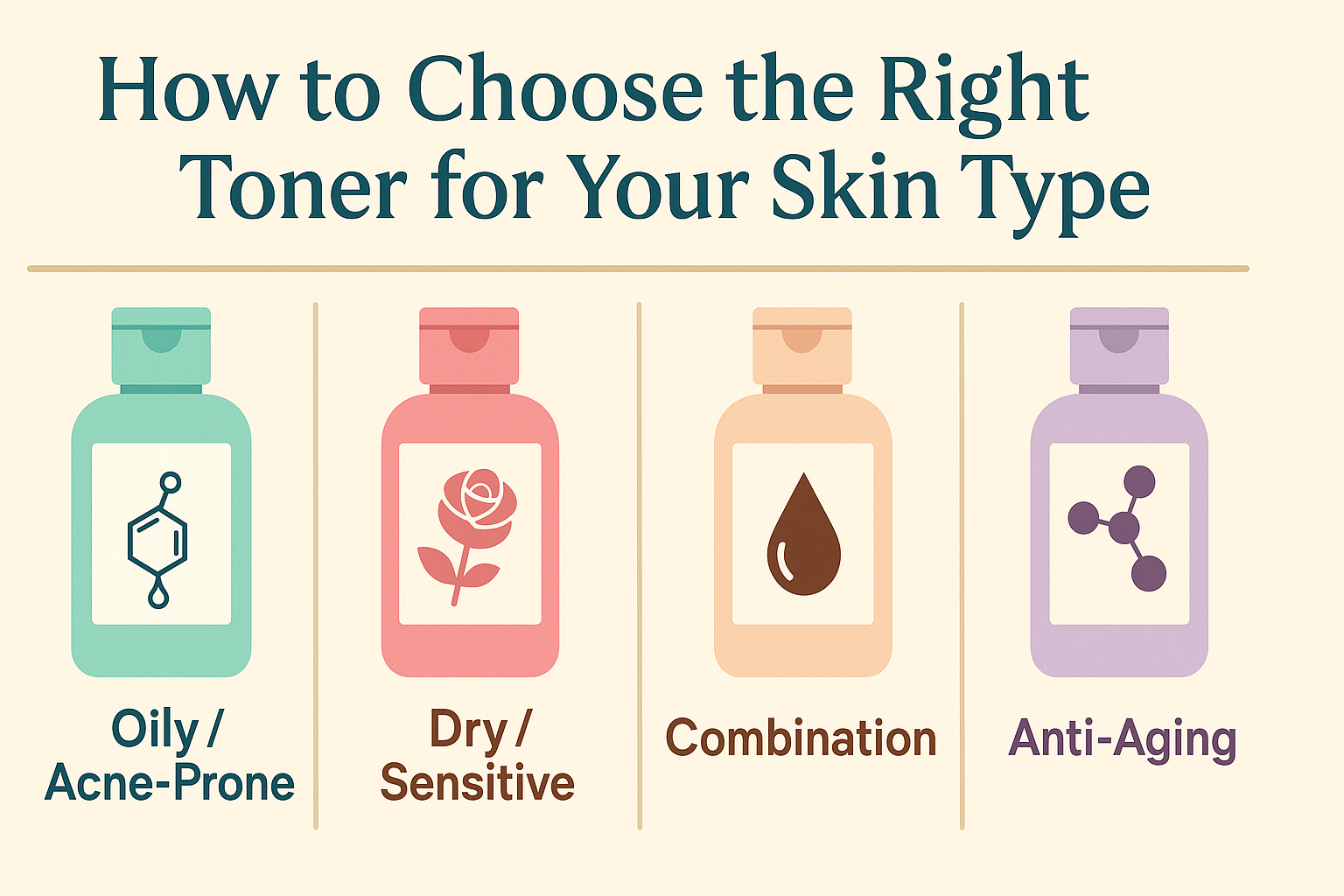
How to Choose the Right Toner for Your Skin Type
Not all toners are created equal. Selecting the right toner for your skin type is crucial to achieving optimal results. For oily or acne-prone skin, look for toners with salicylic acid, witch hazel, or tea tree oil to control excess oil and minimize breakouts. For dry or sensitive skin, choose hydrating toners with ingredients like rose water, hyaluronic acid, or glycerin. Combination skin types may benefit from balancing toners that provide moisture while managing oil production.
If anti-aging is a concern, consider a toner with peptides or antioxidants like vitamin C. These ingredients help to protect the skin from environmental stressors while promoting a youthful, glowing complexion. Being mindful of alcohol content is also important; alcohol-based toners can be drying, especially for sensitive or dry skin. Always check ingredient labels and opt for formulations that support your specific skin needs.
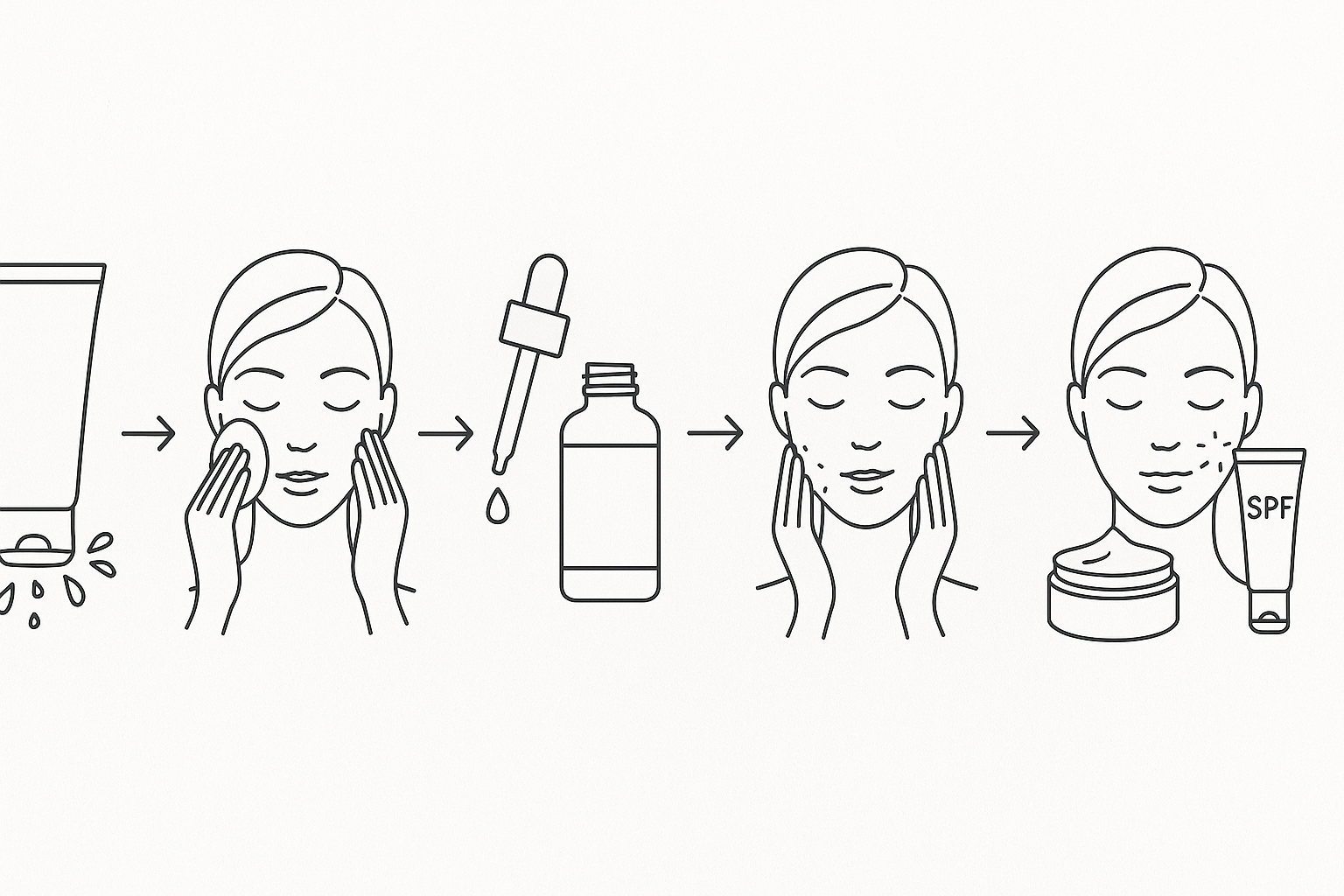
Step-by-Step Routine for Using Toner Morning and Night
To maximize the benefits of toner, it’s important to apply it correctly during your skincare routine. Here is a comprehensive step-by-step guide for incorporating toner seamlessly into your morning and evening rituals, ensuring your skin receives optimal hydration, balance, and nourishment for radiant health.
- Cleanse your face thoroughly.
- Apply toner to a cotton pad or your hands.
- Gently sweep across the face and neck.
- Let the toner absorb before applying serum or moisturizer.
- Follow up with sunscreen in the morning or a night cream before bed.
Expert Tips for Maximizing Toner Benefits
- Use a hydrating mist before toner for extra moisture.
- Always follow with a serum to seal in the hydration.
- Avoid harsh exfoliants immediately after toner to prevent irritation.
- Pat the toner into the skin instead of rubbing to prevent micro-damage.
- Store toner in a cool, dark place to preserve its effectiveness.
Common Mistakes to Avoid
- Skipping toner entirely during the routine.
- Applying too much toner, leading to irritation.
- Using alcohol-based toners on sensitive skin.
- Rubbing too harshly during application.
- Forgetting to follow with a moisturizer, which can cause dryness.
Frequently Asked Questions About Using Toner Morning and Night
Do you use toner morning and night for all skin types?
While many people benefit from using toner morning and night, the frequency often depends on your skin type and sensitivity. For oily or acne-prone skin, twice-daily application can help manage excess oil and reduce pore congestion. However, those with dry or sensitive skin may find that applying toner both morning and night leads to dryness or irritation. In such cases, opting for a gentle, hydrating toner with soothing ingredients like rose water or hyaluronic acid can help maintain moisture balance. Always observe how your skin responds and adjust your routine accordingly.
What step is toner in skin care, and why is it important?
Toner is traditionally the second step in a skin care routine, following cleansing and preceding serums and moisturizers. Its primary purpose is to balance the skin’s pH after cleansing, remove any lingering impurities, and prepare the skin for better absorption of products that follow. Some toners also provide targeted benefits, such as hydration, exfoliation, or pore tightening. By including toner in this crucial step, you optimize the effectiveness of your entire skincare regimen. Proper application enhances the performance of your serums and moisturizers, allowing your skin to fully benefit from the nutrients they provide.
Should you use toner in the morning if you applied it the night before?
Yes, you should use toner in the morning even if you applied it the previous night. Overnight, your skin undergoes natural oil production and regenerates cells, which can leave residue and build-up on the surface. A morning application of toner helps remove these impurities, balance your skin’s pH, and prepare it for daytime products like moisturizers and sunscreen. Additionally, many toners contain antioxidants that protect your skin from environmental stressors throughout the day. Using it both morning and night ensures that your skin is constantly protected and primed for maximum absorption of active ingredients.
When to use toner in skin care routine for maximum benefit?
The best time to use toner in your skin care routine is directly after cleansing and before applying any serums or moisturizers. This placement allows toner to remove any remaining traces of cleanser or impurities while balancing the skin’s natural pH. Furthermore, it preps the skin for better absorption of active ingredients in subsequent products. If you use an exfoliating toner, it can also help to slough off dead skin cells, making it easier for serums to penetrate deeply. Consistent use in this order maximizes the benefits of your entire routine.
Is it better to apply toner at night or morning?
There is no definitive answer, as both morning and nighttime applications serve unique purposes. In the morning, toner helps remove any residual oil or impurities that accumulate overnight, while also balancing pH levels before you apply protective layers of serum and SPF. At night, toner cleanses away the day’s buildup of dirt, pollutants, and leftover makeup, setting the stage for nighttime repair. For optimal skin health, many dermatologists recommend using toner both morning and night, but your specific skin type and concerns should guide your routine.
What happens if you skip toner in your skin care routine?
Skipping toner in your skincare routine may lead to less effective absorption of serums and moisturizers. Toner helps to balance your skin’s pH and remove any leftover impurities that cleansers might miss. Without it, your skin might not fully benefit from the active ingredients in the products that follow. Over time, this can result in uneven texture, clogged pores, and less radiant skin. For those with oily or acne-prone skin, skipping toner can also mean missed opportunities for oil control and pore tightening.
When do I use toner in my skincare routine if I double cleanse?
If you practice double cleansing, apply your toner after both cleansing steps are complete. Double cleansing typically involves an oil-based cleanser to remove makeup and sunscreen, followed by a water-based cleanser to purify the skin. After these steps, toner helps to clear any lingering residue and balance the skin’s pH, setting the stage for optimal absorption of serums and moisturizers. Skipping toner after double cleansing can leave your skin feeling tight or unbalanced, particularly if your second cleanser is more alkaline.
Can I use toner more than twice a day if my skin feels oily?
While it might be tempting to use toner more than twice a day when your skin feels oily, overuse can disrupt your skin’s natural barrier and lead to dryness or irritation. If you find your skin producing excess oil midday, consider blotting papers or a hydrating facial mist instead. Alternatively, opt for a mattifying toner in the morning that controls oil throughout the day. Consistency with morning and nighttime toner application is generally sufficient for oil control without risking skin imbalance.
Should I change my toner usage in different seasons?
Yes, your toner usage might need adjustment based on seasonal changes. In winter, you might opt for a more hydrating toner to combat dryness and environmental stress. During summer, a clarifying or oil-controlling toner may be more beneficial to manage sweat and excess sebum. Being mindful of how your skin responds to different weather conditions will help you choose the right toner and maintain a balanced complexion year-round.
Does using toner morning and night improve long-term skin health?
Yes, using toner morning and night can significantly improve long-term skin health. Regular application helps maintain a balanced pH, which is crucial for protecting your skin from bacteria and pollutants. It also enhances the absorption of active ingredients in serums and moisturizers, leading to better hydration, reduced signs of aging, and clearer pores. Over time, this can contribute to smoother, more resilient skin with fewer breakouts and signs of irritation. Commitment to this routine can result in visibly healthier and more radiant skin as you age.
Conclusion
The question of whether you should use toner morning and night ultimately comes down to understanding your skin’s unique needs and selecting the right formulation. Consistency is key, as regular toner application can significantly enhance the effectiveness of your entire skincare routine. Morning use fortifies the skin’s barrier against environmental stressors, while nighttime application aids in cellular repair and regeneration. By integrating toner into both phases of your daily regimen, you set the stage for balanced, hydrated, and resilient skin.
Remember, not all toners are created equal. Choose products that align with your skin type and concerns, and always follow with proper moisturization to lock in the benefits. When done correctly, using toner morning and night is not just a step in your skincare routine—it’s a transformative practice for lasting skin health and radiance.
Further Reading :
Morning vs. Night Skincare: What is Best?
What Is Toner, and Do You Really Need It? We Asked Dermatologists